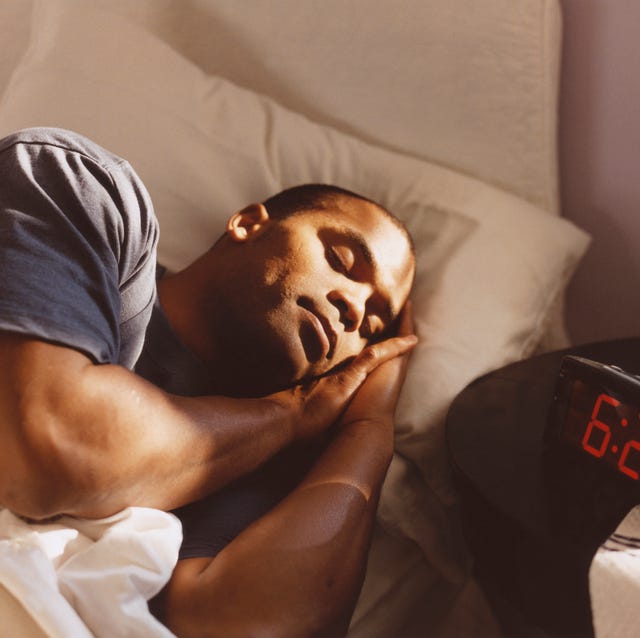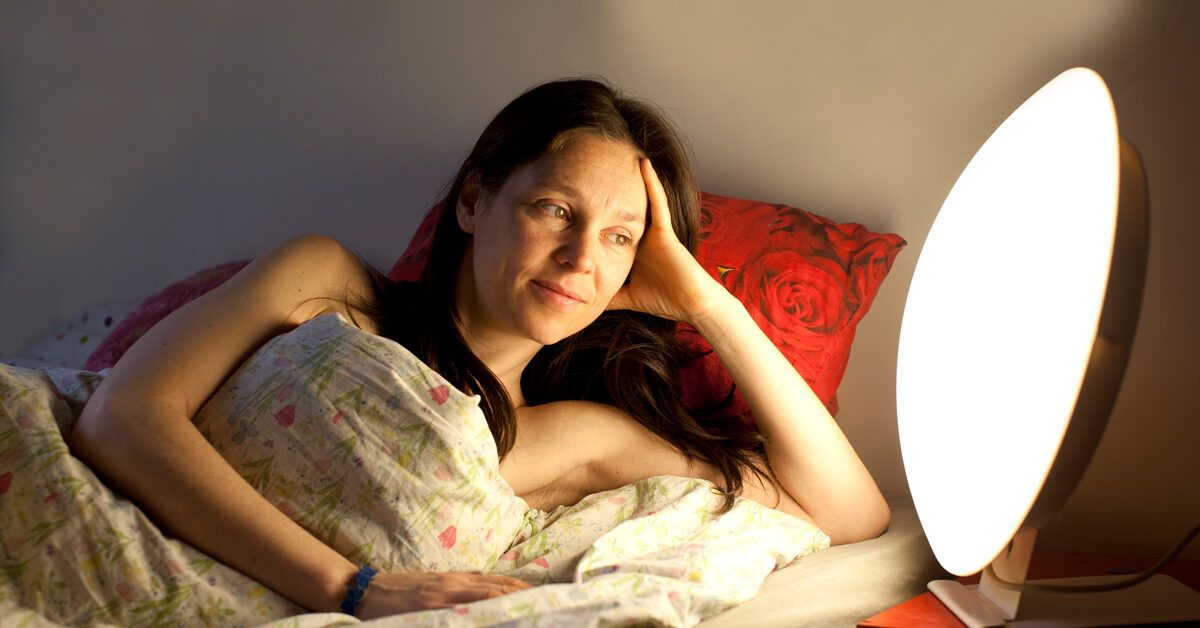Cognitive Behavioral Therapy for Insomnia (CBT-I) - Proven Methods
Cognitive Behavioral Therapy for Insomnia (CBT-I) - Proven Methods
Blog Article
Effective Therapy Solutions for Managing Sleep Disorders and Enhancing Relaxed Sleep
In the world of health care, the administration of rest problems and the pursuit for relaxing rest are crucial elements of total wellness. Effective therapy remedies use a complex approach to deal with these obstacles, varying from cognitive behavioral treatments to holistic practices that promote relaxation and mindfulness. The expedition of various approaches, consisting of the assimilation of medication and light therapy, opens up a world of opportunities in the pursuit of much better sleep high quality. As we browse the elaborate landscape of sleep problems and seek to enhance our rest experience, a deeper understanding of these therapy services might hold the trick to opening a much more rejuvenating and meeting restorative journey.
Cognitive Behavioral Treatment for Sleeping Disorders (CBT-I)
Cognitive Behavioral Therapy for Sleeping Disorders (CBT-I) is an organized, evidence-based treatment method that concentrates on addressing the hidden elements contributing to sleep disturbances. This kind of therapy intends to change behaviors and thoughts that exacerbate insomnia, ultimately promoting healthy and balanced rest patterns. CBT-I generally entails several key elements, consisting of cognitive treatment, sleep constraint, stimulation control, and sleep health education.
Cognitive therapy assists people identify and change unfavorable idea patterns and beliefs regarding rest that may be hindering their capability to fall or stay asleep. Sleep limitation includes restricting the amount of time spent in bed to match the individual's real rest period, therefore boosting sleep efficiency (sleep disorder treatment). Stimulus control techniques help establish a strong association between the bed and rest by urging people to visit bed just when drowsy and to avoid involving in boosting activities in bed
Moreover, rest hygiene education concentrates on establishing healthy sleep habits, such as preserving a regular rest routine, producing a relaxing going to bed routine, and maximizing the sleep atmosphere. By addressing these aspects thoroughly, CBT-I provides a reliable non-pharmacological intervention for taking care of sleeplessness and enhancing general sleep high quality.
Rest Hygiene Practices
Having established the foundation of cognitive restructuring and behavioral adjustments in resolving insomnia via Cognitive Behavioral Therapy for Insomnia (CBT-I), the emphasis now shifts towards discovering vital Sleep Hygiene Practices for keeping optimal sleep high quality and total well-being.
Sleep hygiene techniques encompass a range of routines and environmental aspects that can considerably impact one's capacity to sleep and remain asleep throughout the evening. Regular rest and wake times, producing a relaxing going to bed regimen, and maximizing the sleep setting by maintaining it dark, peaceful, and cool are essential components of excellent sleep health. Restricting direct exposure to screens prior to going to bed, preventing stimulants like high levels of caffeine near going to bed, and participating in regular exercise throughout the day can likewise promote much better sleep top quality.
In addition, exercising leisure methods such as deep breathing workouts or meditation before bed can assist soothe the mind and prepare the body for sleep. By including these sleep hygiene practices into one's daily routine, people can develop a healthy and balanced rest pattern that supports restful sleep and overall well-being.
Relaxation Strategies and Mindfulness
Implementing relaxation strategies and mindfulness techniques can play an essential role in promoting a feeling of tranquility and promoting high quality rest. insomnia specialist. These strategies aim to quiet the mind, lower tension, and create an optimal environment for restful sleep. One commonly exercised technique is deep breathing exercises, where individuals concentrate on slow, deep breaths to unwind the mind and body. Dynamic muscle mass leisure includes tensing and then launching each muscle mass group, advertising physical relaxation. In addition, guided images can assist deliver people to a tranquil area in their minds, helping in stress and anxiety decrease and boosting rest quality.
Mindfulness methods, such as reflection and yoga, are also effective in promoting relaxation and boosting rest. Mindfulness motivates individuals to remain existing in the minute, releasing worries about the past or future. By including these methods into a going to bed routine, people can signify to their bodies that it is time to unwind and prepare for rest. On the whole, integrating relaxation methods and mindfulness methods can substantially add to taking care of sleep conditions and enhancing total rest quality.

Medicine Options for Sleep Disorders
After checking out relaxation techniques and mindfulness methods as non-pharmacological treatments for boosting sleep top quality, it is necessary to think about medication alternatives insomnia counseling for people with sleep disorders. In instances where way of life modifications and treatment do not supply adequate alleviation, medicine can be a beneficial tool in taking care of sleep disruptions.
Generally prescribed drugs for sleep problems consist of benzodiazepines, non-benzodiazepine hypnotics, antidepressants, and melatonin receptor agonists. Benzodiazepines, such as diazepam, are sedatives that can assist cause rest, however they are normally suggested for temporary usage because of the threat of dependancy. Non-benzodiazepine hypnotics like zolpidem are likewise made use of to treat sleeping disorders and have a lower risk of reliance contrasted to benzodiazepines. Antidepressants, such as trazodone, can be beneficial for individuals with co-occurring clinical depression and rest disturbances. Melatonin receptor agonists, like ramelteon, target the body's all-natural sleep-wake cycle and can be useful for managing rest patterns.
It is important for people to talk to a healthcare supplier to establish one of the most appropriate medication choice based upon their certain sleep problem and case history.
Light Treatment for Body Clock Law
Light treatment, likewise referred to as photo-therapy, is a non-invasive therapy approach utilized to control circadian rhythms and improve sleep-wake cycles. This therapy entails exposure to brilliant light that mimics all-natural sunshine, which assists to reset the body's biological rhythm. By revealing people to certain wavelengths of light, normally in the early morning or evening relying on the wanted impact, light treatment can properly readjust the circadian rhythm to advertise wakefulness throughout the day and improve restful sleep during the night.
Research has actually shown that light therapy can be particularly valuable for individuals with circadian rhythm conditions, such as postponed rest phase syndrome or jet lag. It can also be practical for those experiencing seasonal depression (SAD), a kind of depression that typically occurs throughout the winter season when natural light exposure is minimized. Light treatment is normally well-tolerated and can be used along with various other treatment approaches for rest problems to optimize outcomes and enhance general sleep high quality.
Verdict
Finally, effective therapy services for managing sleep disorders and boosting restful rest consist of Cognitive Behavioral Treatment for Insomnia (CBT-I), sleep health practices, relaxation strategies and mindfulness, drug alternatives, and light treatment for body clock law. These approaches can help individuals improve their sleep quality and total wellness. It is vital to speak with a doctor to establish the most appropriate method for attending to rest problems.
As we navigate the elaborate landscape of rest conditions and look for to improve our rest experience, a much deeper understanding of these therapy options might hold the trick to unlocking an extra rejuvenating and satisfying restorative journey.
Sleep restriction entails limiting the quantity of time spent in bed to match the individual's real rest period, thereby enhancing rest effectiveness. Consistent sleep and wake times, producing a relaxing bedtime routine, and maximizing the rest atmosphere by maintaining it dark, quiet, and cool are critical parts of great sleep hygiene. Light therapy is typically well-tolerated and can be used in combination with other treatment approaches for sleep conditions to enhance outcomes and boost overall sleep top quality.

Report this page